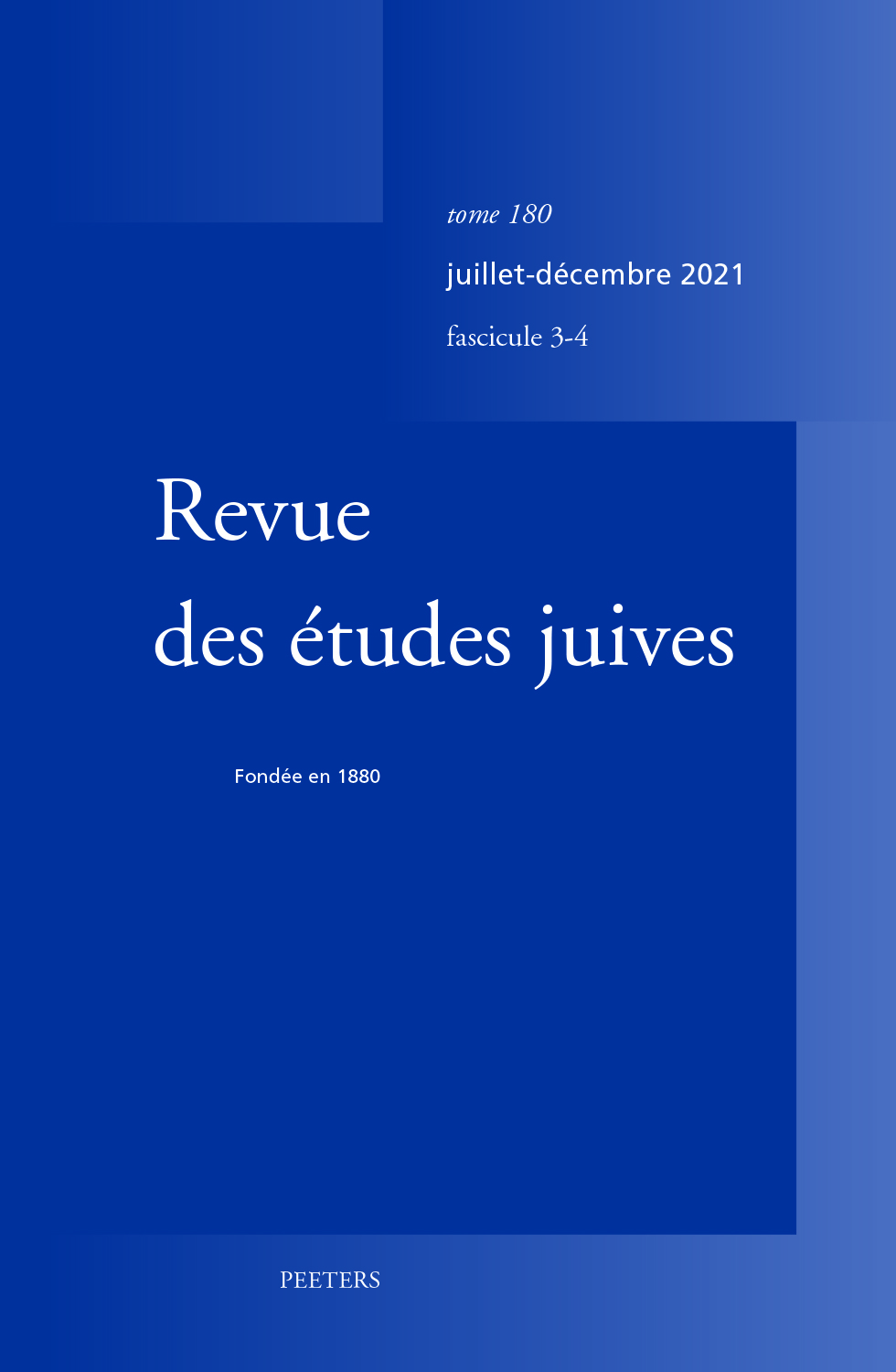 previous article in this issue previous article in this issue | next article in this issue  |

Preview first page |
Document Details : Title: La succession du Chaagat Arieh (1785-1786) Author(s): SCHWARZFUCHS, Simon Journal: Revue des Études Juives Volume: 175 Issue: 3-4 Date: juillet-décembre 2016 Pages: 309-365 DOI: 10.2143/REJ.175.3.3186068 Abstract : La récente découverte de l’inventaire de la succession du célèbre rabbin de Metz surnommé le Chaagat Arieh révèle pour la première fois la nature et l’ampleur des activités et de la fortune d’un grand rabbin d’une nation des Juifs dans une province française sous l’Ancien Régime. Rien n’y est passé sous silence: on trouve même le catalogue de sa bibliothèque ou le détail de sa garde-robe et de celle de son épouse. Du fait de sa nomination, il était également devenu tout comme ses collègues patentés le juge et le notaire des Juifs de sa circonscription à quelques réserves près. Le Chaagat Arieh était assez fortuné pour accorder des prêts d’argent relativement nombreux à des Juifs et à des non-Juifs. Certains n’avaient pas été remboursés lors de son décès, d’où la nécessité de cet inventaire, qui fut dressé par le notaire royal et non par le tribunal rabbinique du lieu. The recent discovery of the inventory of the succession of the late Metz Rabbi, best known as the Shaagat Arieh, allows for a new appreciation of the nature and size of the activities of a chief rabbi of the Jews of a Jewish nation in a French province during the days of the Ancient Régime. Nothing is omitted, including the catalogue of his library or the detail of his own and his wife’s wardrobe. With his appointment he had also become, as his patented colleagues had, the judge and notary of the Jews of his jurisdiction with a few exceptions. The Shaagat Arieh was rich enough to grant numerous loans to Jews and Christians. Some of these had not been repaid until his demise and this made this inventory indispensable. It was therefore drawn by the royal notary and not by a Jewish court. |
|


